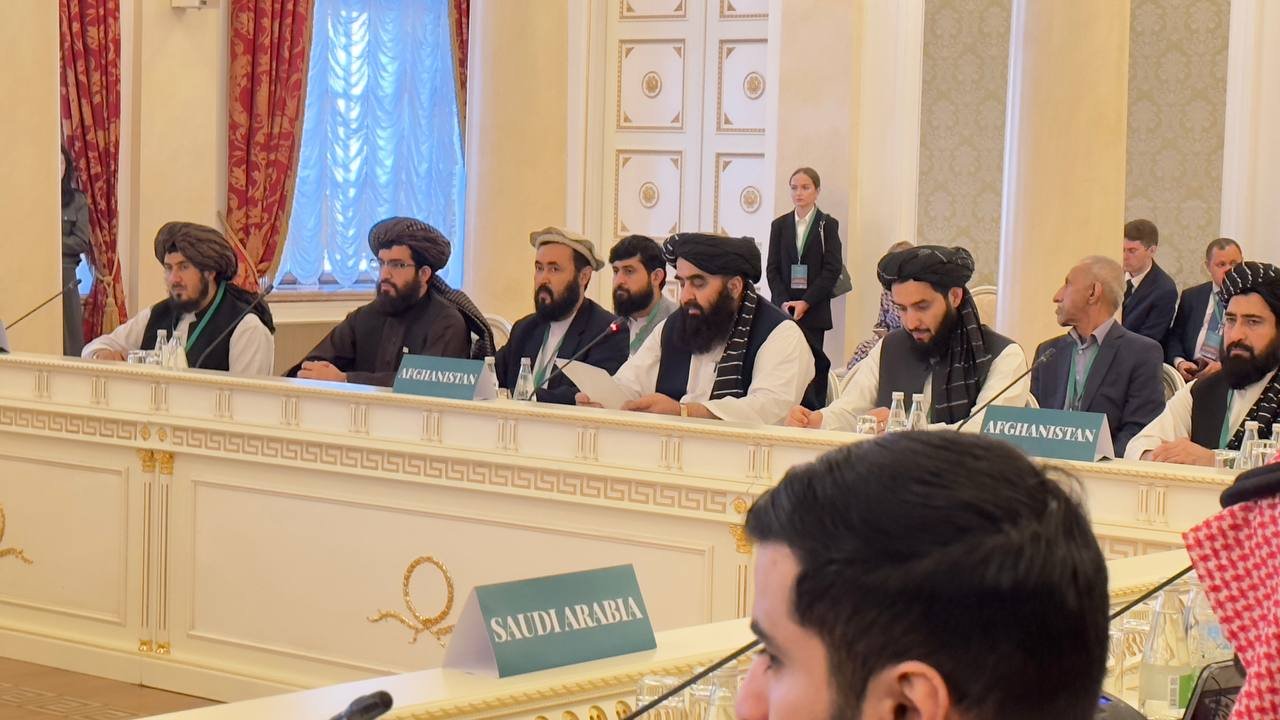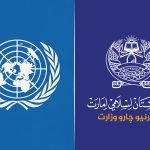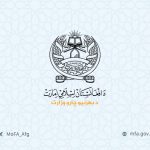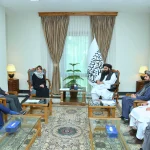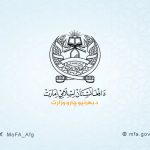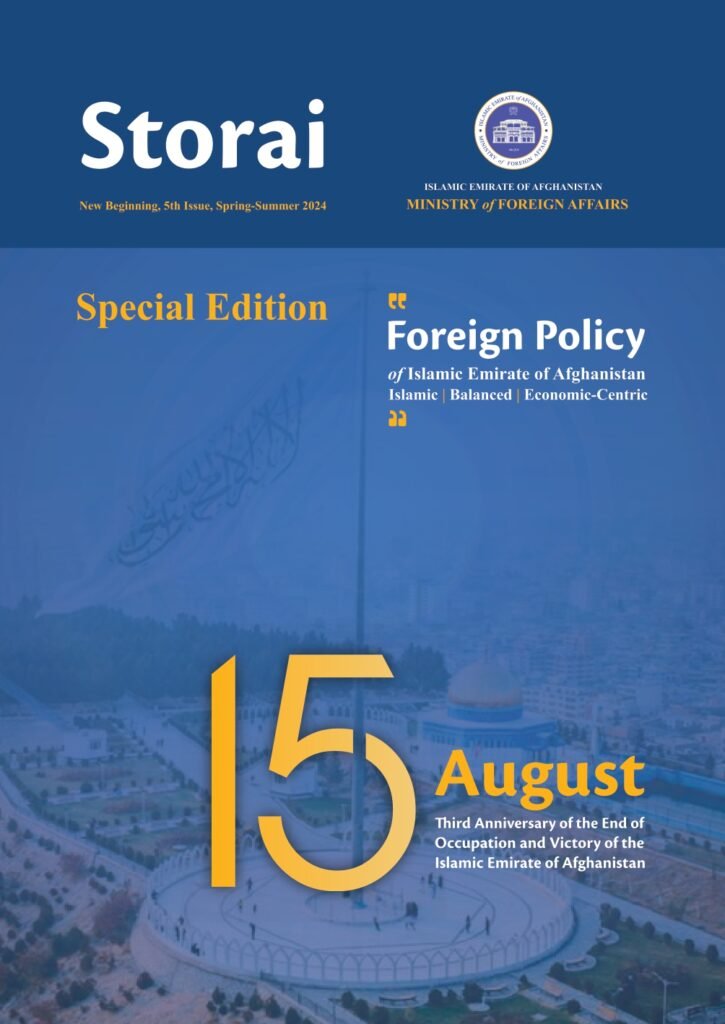September 29, 2023
Kazan, Tatarstan
In the name of Allah, the Most Beneficent, the Most Merciful
First and foremost, let me begin by expressing my gratitude to the Russian Federation for holding this meeting and inviting us to participate on behalf of the Islamic Emirate of Afghanistan to comprehensively discuss recent political, security and economic developments in Afghanistan.
Excellencies,
Two years ago, on October 16, 2021, our delegation participated in the Moscow Format meeting at a time when the US-NATO occupation in Afghanistan and the administration dependent on upon it were terminated, and the Islamic Emirate of Afghanistan had newly embarked on governance. At the time, some were gravely concerned and questioned the upcoming challenges of governance and institutional revival, particularly the security sector, security situation, and narcotics.
However, we believed that with the assistance of Almighty Allah, support of the people and with our own resolute determination, we will lay down the foundations of an independent, peaceful and prosperous Afghanistan following the occupation’s end. Alhamdulillah that this has happened and these foundations are being consolidated.
Over the last two years, we have assured the region and the world of Afghanistan’s security situation through this format and other settings, and have pledged that the Islamic Emirate of Afghanistan, as an accountable government, will allow none to use the territory of Afghanistan to threaten world, regional and particularly our neighboring countries – and we have practically fulfilled this pledge.
In parallel to rebuilding the political, security and economic foundations of our government over the last two years, we expedited operations against mischievous groups trained under the shadow of occupation, and were able to professionally eliminate all Daesh hideouts across the country, thus neutralizing the last major conspiracy directed against regional security, including Afghanistan.
Excellencies,
Over the last nearly half a century, Afghanistan has been facing political, security, economic, social and particularly domestic legitimacy crises leading to numerous challenges. Academic and practical experiments have demonstrated that the crises were principally rooted in the implementation of foreign prescriptions, models and demands directed at our internal affairs while completely disregarding our geography, history, culture, religious and social values.
Our claim is best epitomized by the last two years of our governance where we, despite sanctions and sans any assistance and support by any side, managed to end the war and ensured security; centralized government; fashioned a self-reliant budget; prevented threats emanating from Afghanistan; effectively countered narcotics; increased employment in civil and private sectors; extended access to justice to all districts and villages; facilitated trade, transit and investment; commenced reconstruction projects across Afghanistan and ensured transparency in provision of services to the most marginalized strata of society.
None of these achievements materialized in the two-decade period of the supposed “inclusive regime” backed with hundreds of thousands of foreign and domestic troops, state of the art weaponry, and the extensive financial and political support of the regional and western countries; with the principal cause for its disintegration being acceptance of foreign demands leading to breakdown of domestic legitimacy and mutiny of the people.
We, therefore, took into account our people’s religion, history, culture and particularly political realities, to lay down the foundations of a government that not only provides good governance, but is also bestowed with religious and popular legitimacy. I hope that regional and world countries also stamp seal these facts because no foreign prescriptions over the past forty-five years, including “inclusivity”, have managed to addressed any of Afghanistan’s challenges.
Just as we do not recommend governance modalities to other countries, we hope that all others, particularly our neighboring and regional countries, also desist from proposing governance models to Afghanistan, and instead focus on officially engaging the Islamic Emirate of Afghanistan in all domains so that we may severe interferences of malevolent sides on the one hand, and on the other, take advantage of the full capacity of Eurasia – which holds approximately 70% of world population, majority of its resources and three quarters of all energy sources – for the mutual benefit by all by making optimal use of this historic opportunity for regional stability and prosperity.
Excellencies,
To conclude, I would like to touch upon specific issues:
First: Now that the occupation in Afghanistan has ended, security is restored and there exists a firm political will, this is opportune time for Afghanistan-centered regional connectivity projects to commence. Driven by our economic-centric foreign policy, we stand ready to facilitate all necessary requirements for regional connectivity, whether in the form of transportation or energy transfer. Following the new political developments, now more than ever, the conditions are favorable for the implementation of the “North-South Trade Corridor”. We support remarks by the Russian Prime Minister H.E. Mihail Mišustin stating: “Russia stands ready to focus on expanding trade routes within the Eurasian region, including Afghanistan and South Asia.” Regional countries must also give importance to securing their interests and making use of opportunities.
Second: Afghanistan has a strong capacity for economic cooperation, trade and investment, and we stand ready to provide all necessary facilities, without discrimination, for infrastructural projects, energy, mines, agriculture, connectivity routes, and particularly for railways projects that connect the entire the region via Afghanistan.
Third: We reiterate our readiness, within the context of border management with our neighboring countries, to prevent the movement of smugglers and other malicious elements. Neutralizing these threats requires collective cooperation. To this end, we have exerted effective efforts and have launched operations to eradicate the cultivation and trafficking of narcotics inside Afghanistan, however, cross-border trafficking needs bilateral cooperation, and we required that cooperation from relevant countries.
Fourth: Over the last two years, Afghanistan has witnessed the beginning of extensive political and diplomatic engagements with various counties, particularly regional countries. To this end, regional countries have taken the lead, for which we remain thankful!
We consider this as a new chapter of diplomatic relations between Afghanistan and the regional and world countries. For instance, the People’s Republic of China introduced a new ambassador to Afghanistan with full diplomatic protocol. We hope that China’s initiative transforms into an example for others to follow, and that our ambassadors are also accepted so to create a conducive environment for effective engagement in pursuit of our mutual interests.
Fifth: Numerous tourists, diplomats, aid workers, journalists and researchers from various countries visit Afghanistan and freely roam the country. We, herewith, once again announce that any party concerned about security or narcotics threats emanating from Afghanistan should visit and send delegations to examine everything up-close instead of listening to and basing their reactions on the propaganda of antagonist circles.
To conclude, I would again like to thank the Russian Federation for this initiative, while declaring to neighboring and regional states that Afghanistan stands ready for positive engagement with all countries on the basis of legitimate mutual interests – and we hope that all countries utilize this opportunity in view of their national interests.
Thank you!

